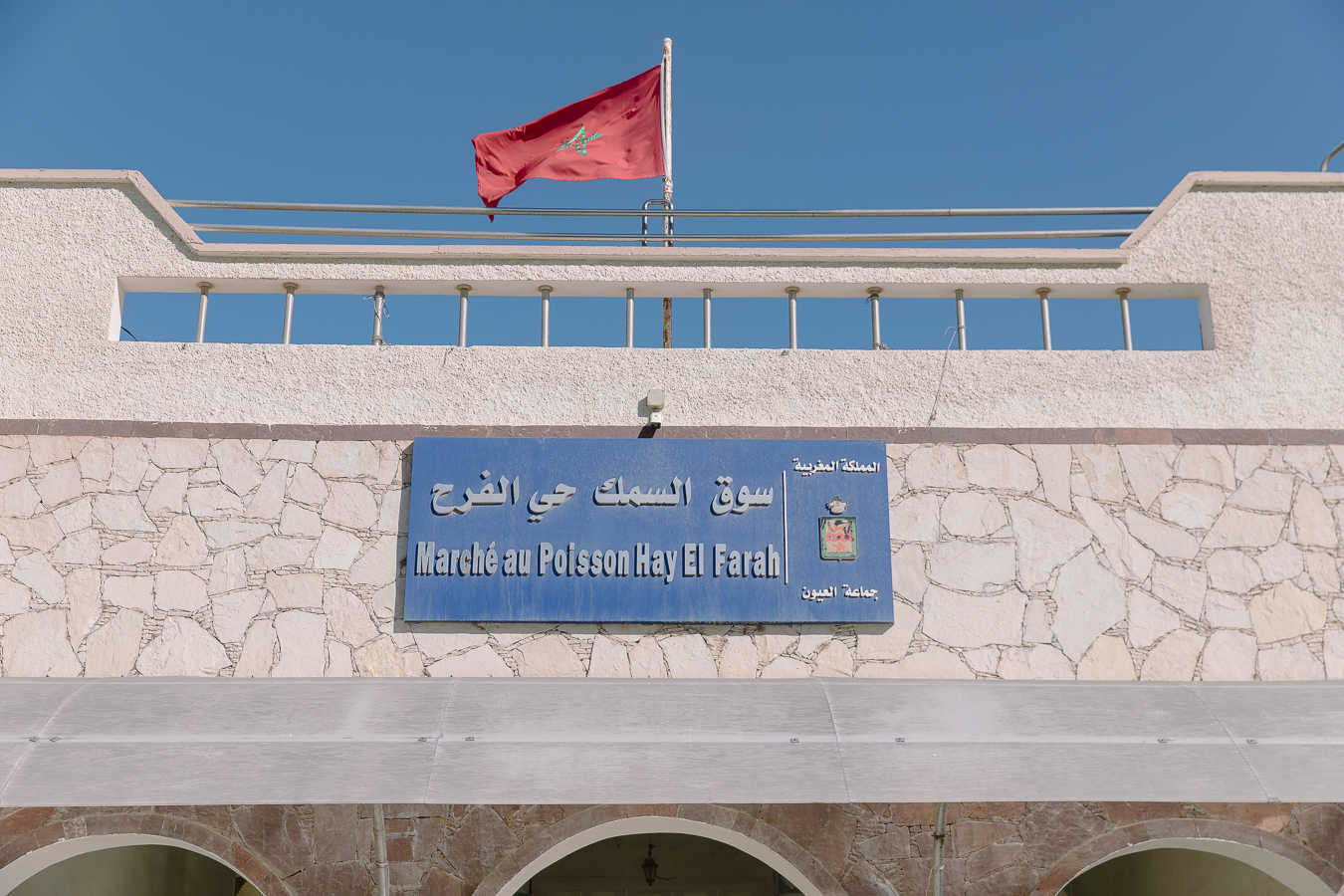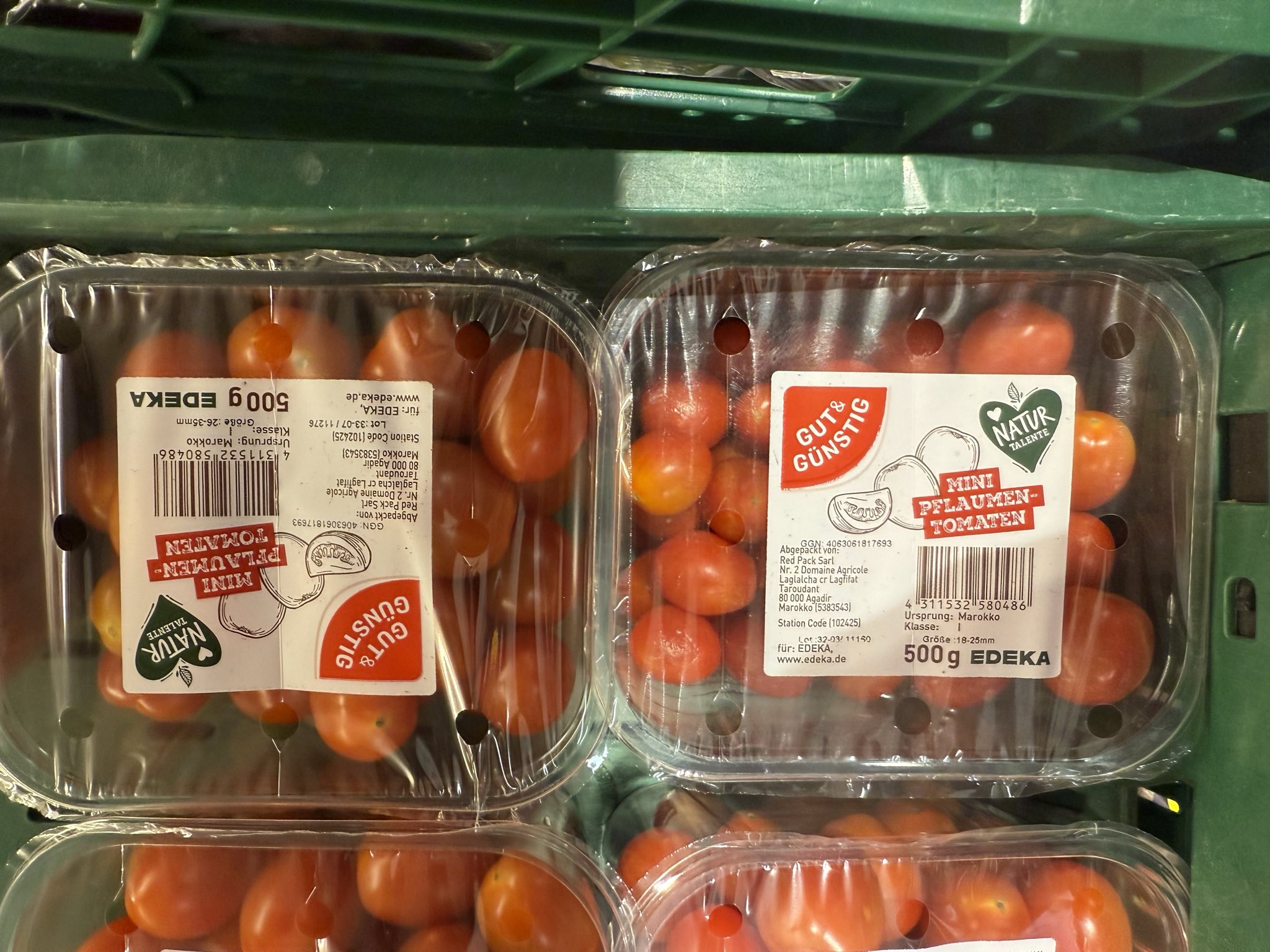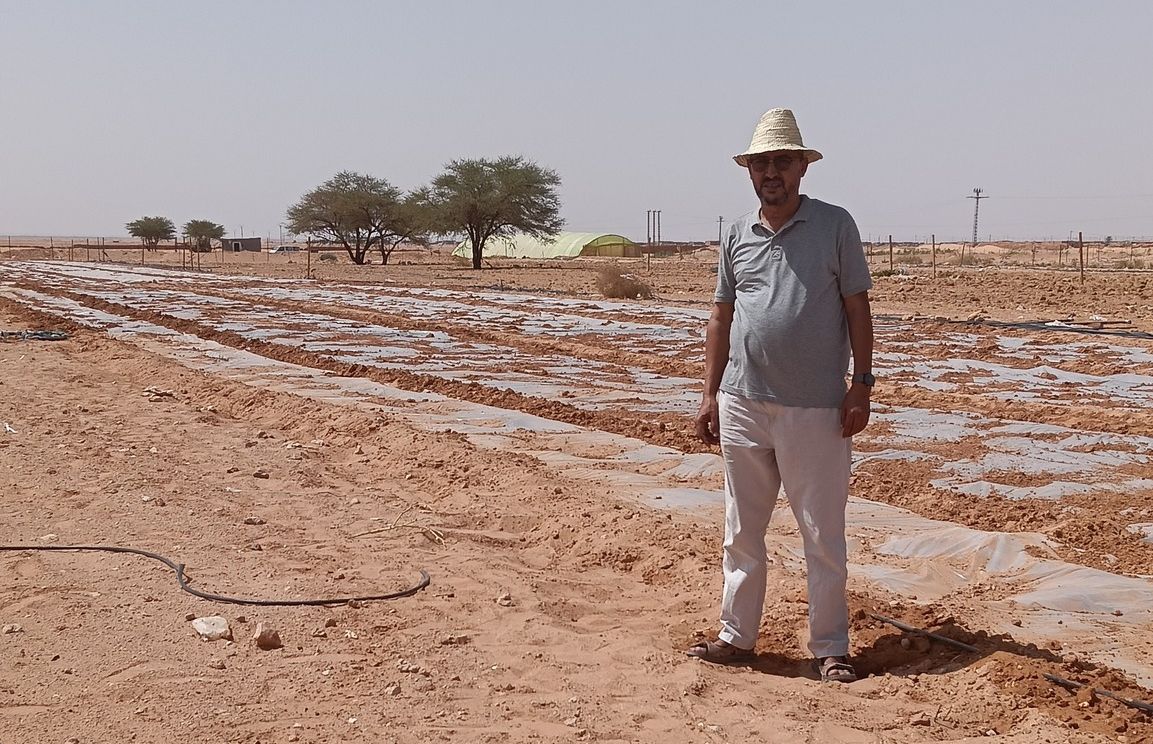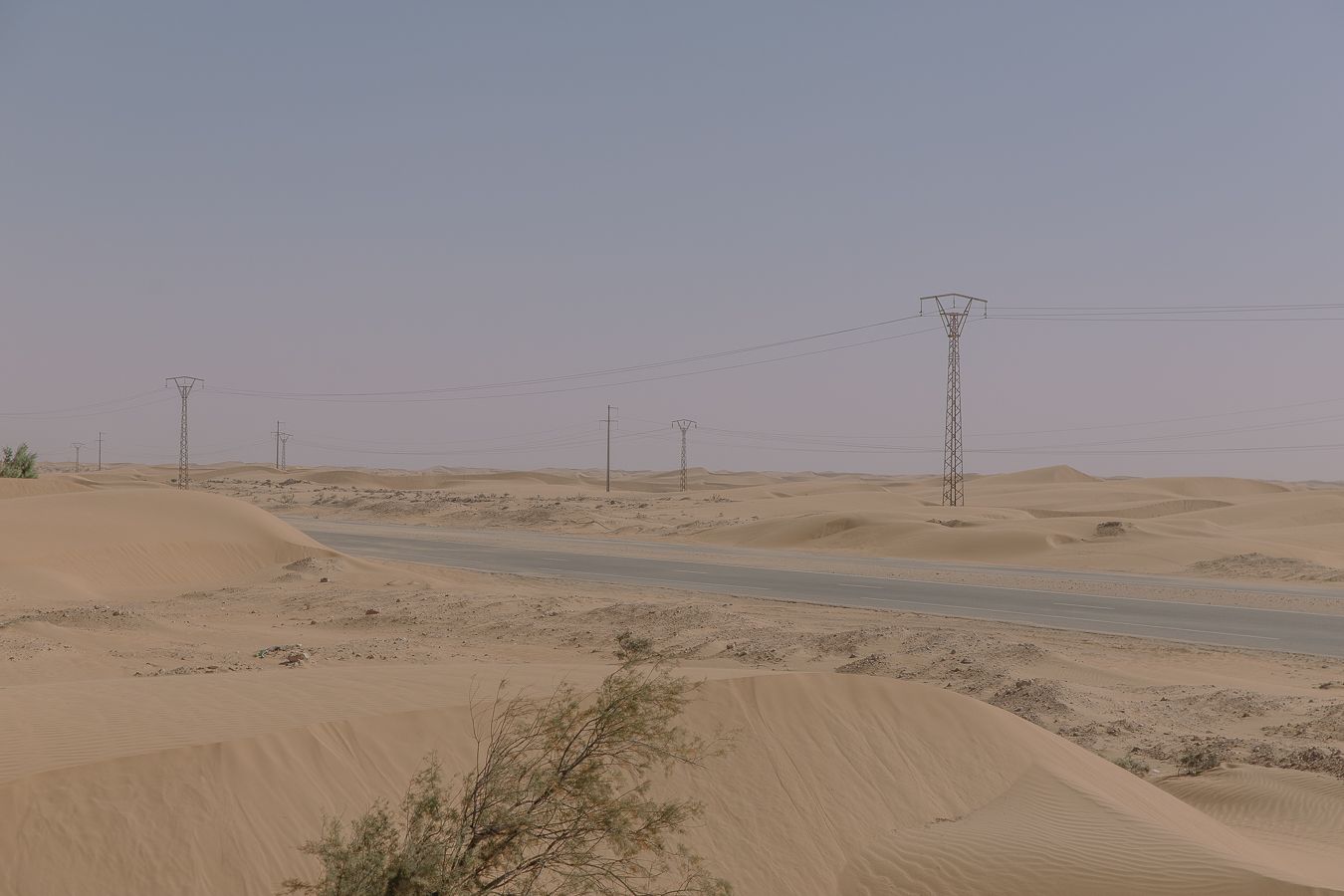
The Universities of Kiel and Hamburg have taken part in mapping the seafloor offshore occupied Western Sahara, seemingly without knowing where they carried out the operation.
“After a short transit of only 8 hours [in the Canary Islands] we reached the Moroccan EEZ and thus our main area of work”, a German team of scientists writes in a report published 19 December 2022.

However, the location of the controversial German research expedition in December 2022 was not at all in Moroccan waters nor in Morocco's Exclusive Economic Zone (EEZ). The territory where the team carried out work in the days prior to Christmas of 2022 is under illegal and brutal occupation by Morocco.
From 11 to 24 December, Western Sahara Resource Watch (WSRW) observed the research vessel Maria S. Merian (IMO 9274197) criss-crossing the waters offshore Boujdour in occupied Western Sahara. None of the reports published by the Universities of Hamburg and Kiel [or download] regarding the expedition indicated the real location of the study. All reporting suggested that it took place in the “Moroccan EEZ” or offshore “Morocco".
After WSRW contacted all relevant German institutions about the matter, only one of the erroneous online reports has been corrected. On one of the website articles of the University of Kiel, the research area is now referred to as situated “off the North-West African coast” (whereas it was until recently described as “Morocco” - see original website as of 29 December 2022 here).
All of the German public institutions that responded to letters from WSRW refer to the assessments of the German Ministry of Foreign Affairs.
Morocco has been occupying the larger part of the territory of Western Sahara in violation of international law since 1975. The UN, the International Court of Justice, the European Court of Justice, the African Court of Human and Peoples' Rights consider Western Sahara as separate and distinct from Morocco and that Morocco has no legal right to be in the territory.
Several public institutions implicated in research mission
The German Research Foundation (Deutsche Forschungsgemeinschaft, DFG) bears 70% of the operating costs for the vessel, with the German Federal Ministry of Education and Research (BMBF) contributing the remaining 30%.
DFG clarifies the following regarding the vessel itself: “The investment costs were shared by the BMBF and the coastal states of Mecklenburg-Vorpommern, Schleswig-Holstein, Bremen and Hamburg. The Maria S. Merian has its home port at the Institute for Baltic Research in Rostock-Warnemünde (IOW) and is owned by the state of Mecklenburg-Vorpommern. The Review Panel on Research Vessels (GPF), set up by the BMBF and the DFG, uses scientific criteria to decide which cruise proposals will be included in the cruise planning. The operation of the vessel is managed by the German Research Fleet Coordination Centre at the Institute of Geology, University of Hamburg.” The Coordination Centre states on its website that it is “responsible for the scientific, technical, logistic and financial planning, execution and support of the ships' operations”.
The expedition team of researchers that entered the occupied waters consisted of 13 scientists from the Christian-Albrechts-Universität in Kiel, three scientists from the GEOMAR Helmholtz Center for Ocean Research in Kiel, two scientists from the Leibniz Institute for Baltic Sea Research in Warnemünde and one scientist from the University of Durham, UK.
According to the reports published by the University of Kiel, the expedition was led by Sebastian Krastel, a geophysicist working as professor at the Institute for Geosciences at the Christian-Albrechts-University in Kiel.
Short descriptions (issue 1, 2, 3, 4, 5) and a short cruise report were uploaded to the University of Hamburg website, describing the works onboard. None of the reports locate the exploration at the right location.
Publication of study results problematic
The purpose of the study was, according to the University of Kiel, to explore sediment waves on the seafloor, "one of the most common forms of soil on the sea floor of our planet, but their formation is still largely unexplored.”
Seabed studies usually have purposes beyond pure academic interests. In 2019, a seabed study was undertaken as the preparatory works for Morocco to lay a seafloor telecom cable to occupied Dakhla in 2021. An article on the website of Leibniz institute, which is also involved in the 2022 mission, indicates that “sediment waves play an important role in the stability of marine slopes and are of importance because of their role in deep-water petroleum” systems.
It is not clear to WSRW what will now happen to the research data. If published, the available knowledge can possibly be further used by Morocco in its efforts to illegally plunder the territory's resources. Most likely by coincidence, the location of the study is exactly overlapping the north-eastern corner of the offshore area for which the Israeli company NewMed Energy signed an oil exploration license on 6 December 2022 with the Moroccan government. More specifically, the overlap is in the blocks “Boujdour Atlantique 1” and "Boujdour Atlantique 2".
Between 10 and 12 January 2023, WSRW contacted all the German institutions involved in the study, emphasizing the potential misuse of the mission’s data by the occupying power Morocco and the serious threats with respect to compliance with international law posed by an expedition into the waters of an occupied territory with permits issued by the occupier. WSRW asked for the elimination of all references of the research area to Morocco and that the results of the mission should not be published until the conflict is solved within the UN-coordinated framework. Find the letters at the end of this article.
According to the vessel's cruise schedule published by the University of Hamburg, the ship was to do seismic studies in “Morocco” from 11 December. The expedition appears in the calendar under the project name "MSM113". The geographical error is still appearing in the cruise schedule.
After completing the works offshore Boujdour on 25 December, the vessel headed north to Moroccan waters, and later to Canary Islands, with 12 January 2023 as the last day of the Spanish/Moroccan/Western Sahara exploration.
Required permits not obtained
For this kind of operations, official permissions in Exclusive Economic Zones of the belonging countries are needed. WSRW has seen no indication that the project has received permission to operate in the territory's waters by Western Sahara’s UN-recognized legal representative Polisario Front. According to the EU Court of Justice, Morocco is not in a position to enter international agreements for the territory, something which can only be given by Polisario. Morocco does not have the EEZ outside of Western Sahara.
According to the website of the fleet coordination center of University of Hamburg [or download], a diplomatic application form has to be completed by the mission’s chief scientist in agreement with the International Convention on the Law of the Sea. It is then “conveyed to the German Federal Foreign Office in Berlin for submission to the relevant coastal states”.
The German Research Fleet Coordination Centre at the Institute of Geology, University of Hamburg, the German Research Foundation (DFG) and the University of Kiel explained in letters to WSRW that they only follow the guidelines of the ministry of foreign affairs.
The German government responded to WSRW's letter of 12 January 2023 that it does not see any problems with the exploration programme.
“At a time when international law is under pressure, it is absurd to observe what has just happened. The University of Kiel does not seemingly know in which country it has operated. What would be the next? Will we see a German public exploration of the waters offshore Crimea, and that the responsible university refers to the waters as part of the Russian exclusive economic zone?", stated Tim Sauer of WSRW in Germany.
“We expect that none of the scientific data acquired on occupied waters be published - nor shared with the Moroccan government - until a solution of the conflict has been found. The data could be misused by the Moroccan government in its plans for the territory. Furthermore, all website information must be immediately corrected, to align with UN terminology”, Sauer stated.
The same German Ministry of Education and Research that is partially behind the decision to send the ship to the territory, last year halted its cooperation with Russia over the invasion of Ukraine.
In its answer to WSRW, DFG claims that the funding of such a mission would “not represent a position of the DFG with regard to conflicting or unresolved claims”. This is contrasted by the German Government's position to “not support economic activities of German companies in Western Sahara and not secure business through export credit and investment guarantees”, as stated by the State Secretary at the Federal Ministry for Economic Affairs and Energy in Germany in 2017.
In its answer, DFG furthermore states that the review panel set up by BMBF and itself “reviews the suggested projects exclusively from a scientific perspective”. “Ensuring compliance with all legal requirements (...) is the responsibility of the respective cruise control in cooperation with (...) the German Research Vessel Control Center”.
The Research Service of the German Bundestag in 2020 published a thorough study on the legal aspects of the conflict in Western Sahara, concluding that Morocco is to be seen as occupying power and its settlement policy substantiates war crimes.
WSRW has not received on answer from the other involved institutions GEOMAR Helmholtz Centre for Ocean Research Kiel, Leibniz-Institute for Baltic Sea Research Warnemünde (IOW) and the Ministry of Science, Culture, Federal and European Affairs Mecklenburg-Western Pomerania.
Letters sent by WSRW:
WSRW to Geomar, 10.01.2023
WSRW to Director of IOW, 10.01.2023
WSRW to Dr. Feldens of IOW, 10.01.2023
WSRW to Prof.Dr. Krastel, University of Kiel, 10.01.2023
WSRW to Mecklenburg-Vorpommern, 10.01.2023
WSRW to Leitstelle Deutsche Forschungsschiffe, 10.01.2023
WSRW to Referatsleitung 724, Bundesministerium für Bildung und Forschung (BMBF), 10.01.2023
WSRW to Bundesministerin, Bundesministerium für Bildung und Forschung (BMBF), 10.01.2023
WSRW to President of University of Kiel, 10.01.2023
WSRW to President of Deutsche Forschungsgemeinschaft, 10.01.2023
WSRW to President, of University of Hamburg, 10.01.2023
WSRW to Programme Director, Begutachtungspanel Forschungsschiffe, Deutsche Forschungsgemeinschaft e.V., 10.01.2023
WSRW to Referatsleitung 312, Auswärtiges Amt, 12.01.2023
WSRW to Referatsleitung 604, Auswärtiges Amt, 12.01.2023
Answers received:
University of Kiel to WSRW, 31.01.2023
DFG to WSRW, 23.01.2023
LdF to WSRW, 23.01.2023.










Since you're here....
WSRW’s work is being read and used more than ever. We work totally independently and to a large extent voluntarily. Our work takes time, dedication and diligence. But we do it because we believe it matters – and we hope you do too. We look for more monthly donors to support our work. If you'd like to contribute to our work – 3€, 5€, 8€ monthly… what you can spare – the future of WSRW would be much more secure. You can set up a monthly donation to WSRW quickly here.
GMP+ does not check if “sustainable” fish is legally caught
The world’s largest certification scheme for “safe and sustainable animal feed” does not check whether its certified fish feed companies source from illegal fisheries in occupied Western Sahara, where catches violate the Saharawi people’s right to self-determination.
Beware of products carrying a “GGN” code
Tomatoes from occupied Western Sahara, certified by GLOBALG.A.P., are being sold in German grocery stores with a false country of origin.
Farmer in exile: GLOBALG.A.P. is certifying injustice
A Saharawi refugee farmer expresses shock about the German certification scheme qualifying Moroccan agriculture in his illegally occupied homeland as sustainable.
Morocco pushes enormous green hydrogen plans in occupied Western Sahara
The Moroccan government has confirmed several green hydrogen projects totalling 20 GW of renewables and up to 8 million tonnes of derivatives - many planned in occupied Western Sahara.



